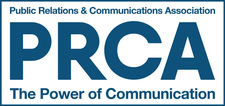Sign up for updates
Interested in studying at the University of Hertfordshire and want to sign up to our mailing list to learn more about our facilities, living in the UK and student life? Use the form below and our team will also keep you informed of key updates such as events near you, applications opening and more!
MA Journalism and Media Communications with Advanced Research
Why choose Herts?
- Employment prospects: Graduates have gone onto work in a variety of media roles such as Press, Social Media Analysts, and Journalists for organisations including BBC, Mail Online, Subway and Euromonitor.
- Teaching excellence: Learn from our industry-experts, award-winning lecturers who are experienced in web, print, design, journalism, and PR (see key staff section).
- Research: Benefit from advanced research study led by our expert research-active teaching staff.
Professional Accreditations
This course is partnered with the Public Relations and Communications Association (PRCA), giving you access to networking and tailored speaker sessions, as well accreditation upon graduation. The University is also an Academic Member of the British Society of Magazine Editors which provides expert speakers and information on the latest trends in this area.

About the course
This programme provides students with a professional critical insight into the media industry. Students will study a range of modules taught by research-active experts. Modules are assessed through a variety of both traditional, such as essays, presentations, and critical reviews alongside non-traditional such as podcasts, pitching and case study simulations which aim to assess and develop transferable skills and subject knowledge.
This Advanced Research award prepares students for conducting and communicating independent research whilst providing students with the opportunity to further hone and advance personal research, analysis, and communication skills. The degree is aimed at applicants aspiring careers in research and communications whether you embark in digital marketing analytics, journalism or research within academia.
Why choose this course?
- To gain a broad range of communication and digital media skills, as well as valuable networking skills and contacts.
- Benefit from our prestigious partnership with the Public Relations and Communications Association (PRCA).
- You’ll have supportive industry speakers and expert lecturers widely experienced in the world of PR and communications.
- Gain insights into emerging trends in the fast-changing digital media world.
- You want your skills to be valued by a wide range of media and related industries.
- Opportunity to develop advanced research skills in preparation for PhD or career involving research.
- You’ll develop your practical and experiential skills through working on a media project with clients such as charities, non-profit organisations and even the University.
What will I study?
You’ll have weekly two-to-four-hour workshops for each module. Plus, there can be online activities too. You’ll be supported by regular one-to-one supervision by academics from the University’s Media Group.
Modules include Corporate Communication, PR and Advertising; Writing for Magazines; Sports Journalism; and Media Production as well as modules on research methodology. You’ll have a range of options for your final project. This can be a dissertation on a media subject of your choice, a short work placement, the one-year placement or a larger media research project, depending on your chosen route.
For Media Production you’ll create multimedia – podcasts, designs and promotional strategies – for online magazines. You’ll pitch and measure a campaign and use social media to promote your work. Writing for Magazines will give you the practical skills to write articles for online and print audiences. You’ll produce webinars on the business model of magazines. Plus, you’ll learn how social media and blogging are enhancing the magazine experience.
Our module Sports Journalism will give you a key understanding in the exciting practices of sports journalism, from interviewing top stars to reporting on breaking sports stories. You’ll also create news bulletins and write news features.
Two modules on research methods and critical and theoretical debates will equip you with advanced research skills and transferable communications skills. These include interviewing, identifying a story and building connections; vital skills for PR and corporate communication roles.
There is an additional Advanced Media Research (30 Credits) and the Media Project (60 Credits) instead of the dissertation or long placement.
Further course information
| Course fact sheets | |
|---|---|
| MA Journalism and Media Communications with Advanced Research | Download |
| Programme specifications | |
|---|---|
| MA Journalism and Media Communications | Download |
| Additional information | |
|---|---|
Sandwich placement or study abroad year |
n/a |
Applications open to international and EU students |
Yes |
